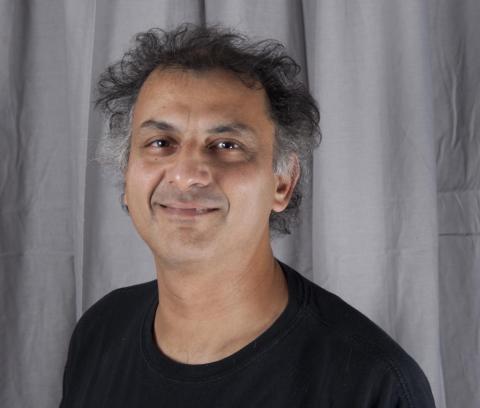Condensed Matter Theory
Much of my recent work is in the area of ``strongly correlated electron systems'', in which the interactions between electrons play a dominant role in selecting the ground state and low-energy excitations of the system. Usually Nature reorganizes the strongly interacting electrons into weakly interacting ``quasiparticles'', which are collective excitations of the electrons. Examples are Landau's Fermi liquid theory, where the quasiparticles have the same quantum numbers as the electron, or the Bardeen-Cooper-Schreiffer theory of superconductivity, where the gound state can roughly be described as a collection of Bose-condensed Cooper pairs (pairs of electrons of opposite spin and momentum). The collective excitations of this system are fermionic quasiparticles and bosonic phase fluctuations. More exotic reorganizations occur in fractional quantum Hall states, where the quasiparticles have a charge which is a fraction of the electron's charge. The fundamental problem of strongly correlated systems may be phrased as that of finding the correct weakly interacting quasiparticles, and the theory that describes their dynamics. Usually, because of the strong interactions, this connection between the original electrons and the final quasiparticles is nonperturbative (that is, the quasiparticle cannot be understood as a small deviation from a noninteracting electron). This makes the problem mathematically quite difficult.
The introduction of disorder, ubiquitous in real life in the form of lattice imperfections or impurity atoms, makes the problem much more challenging and interesting. Many symmetries of the clean system, such as translation and rotation, are now absent, and this makes the analysis of disordered systems much harder. More importantly, qualitatively new phenomena which are not present in systems without disorder can arise in systems with disorder, even when the electrons are noninteracting. Of course, real systems are both disordered and interacting, potentially leading to even more interesting new phenomena. I believe the interplay of interactions and disorder will be one of the dominant themes of condensed matter theory in the years to come, and I have started some investigations into this subfield. In particular, with my co-workers Herb Fertig, Harsh Mathur, R. Shankar, and Damir Herman, I have been able to obtain { nonperturbative} solutions to this problem in certain experimentally interesting regimes.
Specific topics I am working on are (i) The role of disorder in the bilayer quantum Hall systems, (ii) States with strong correlations and strong quantum fluctuations in mesoscopic systems, and (iii) The effect of disorder on gauge theories.
Education
- B.Tech., Physics, Indian Institute of Technology, Madras (1982)
- Ph.D., Theoretical Condensed Matter Physics), Yale University (1987)

